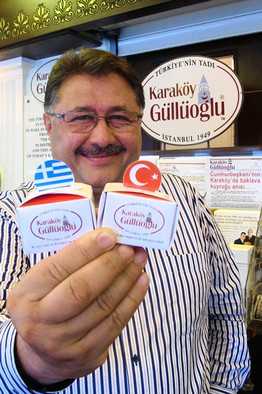
Does anyone know what Operation Sunshine is, or was? It is, or was, an MI6 operation in Cyprus back in 1959. The details are revealed in the enlightening research of Stephen Dorril under the title “MI6-Inside the Covert World of Her Majesty’s Secret Intelligence Service.”
The summary is as follows: Cyprus was drawn into ethnic conflict in the late 1950s. Armed, right-wing Greek bands were carrying out attacks against British rule on the island and against Turkish civilians – something that would be named as an attempt at ethnic cleansing in today’s world. In response, Turkey secretly helped an embryonic resistance among Turkish Cypriots, organizing and arming them.
The Brits decided to take effective steps. MI6 started to tap some VIP telephones, relying on the cutting-edge technology of the day in order to prevent further killings and provide a basis for a settlement between Greek and Turkish Cypriots. The names included the Greek leader, Archbishop Marakios III. While eavesdropping on Makarios’ lines in order to obtain some political and military information, they recorded some other stuff by mistake – “Rather unusual homosexual proclivities,” as described by the book.
That was in 1958 and when Makarios resisted signing an agreement with Turkish Cypriots under the guarantee of Britain, Turkey and Greece in 1959 in Zurich, he had a visitor in his hotel room with some information to share. Makarios changed his mind overnight, came down to the hotel lobby where his Turkish counterpart Fazıl Küçük was waiting and signed the first treaty on Cyprus which lead the establishment of the Republic of Cyprus in 1960.
That was Operation Sunshine. That is a part of the background story about how the Republic of Cyprus with Makarios as the president and Küçük as the deputy president was established.
That British-made fragile structure began to fall apart a few years later, ultimately leading to theTurkish military intervention which divided Cyprus into two in 1974.
Being happy with the status quo, Ankara did almost nothing other than support the declaration of the Turkish Republic of Northern Cyprus, of which only Turkey recognizes.
Turgut Özal was the first Turkish leader who talked about a “bi-zonal, bi-communal, federal system” in the 1980s. In the mid-1990s, Turkey silently distanced itself from that formula, which was not adopted by the Greeks anyway.
Under the Justice and Development Party, or AK Parti, Prime Minister Tayyip Erdoğan adopted a U.N.-backed reunification strategy, which was rejected by the Greek Cypriots in 2004. The European Union’s subsequent admittance of the Republic of Cyprus (officially representing the separated Turks in the north as well), made Erdoğan upset, like many of the Turks.
Now Erdoğan is going back to Özal’s federal model and is threatening whomever by starting to support two separate states on the island, risking Turkey’s relations with the EU.
That brings us to the threshold of a series of very interesting events in the coming months in the eastern Mediterranean.
Hürriyet Daily News






